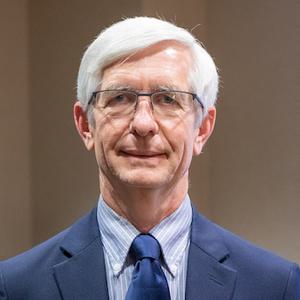
Budget & Tax
Rick Farmer, Ph.D. | December 19, 2019
Oklahoma budget timeline explained
Rick Farmer, Ph.D.
Last year Oklahoma had a budget surplus of $355 million. In the three previous years, Oklahoma experienced revenue shortfalls prompting across-the-board spending cuts and a special legislative session. Why is the state budget so difficult to estimate? Why is it so hard to know how much can be spent?
The answers to these questions are found in the budget timeline. Estimating Oklahoma’s state budget requires accurately predicting Oklahoma’s economy 22 months in advance. Identifying needs and resources that far out is difficult.
As seen here, the timeline begins with state agencies estimating their needs. The resources requested by agencies in September are to cover expenses in the future from July 1 to June 30 (10 to 22 months away).
Once the agencies have submitted their requests, the Office of Management and Enterprise Services (OMES) begins working on the governor’s budget proposal and the Legislature begins holding budget hearings.
In late December the State Equalization Board meets to establish a preliminary revenue estimate for the upcoming fiscal year. The staff and economists involved in this process must estimate the income tax, sales tax, automobile tax, gross production tax, etc. 7 to 19 months away.
The revenue estimate is particularly difficult because Oklahoma’s economy is so dependent on the price of oil. While efforts have been made to diversify the economy, the price of oil still has a major effect on the budget. Gross production tax only accounts for about 4 percent of appropriated funds, but oil and gas activity affect the income tax, sales tax, auto tax, and every other aspect of the economy. The volatility in the price of oil is the biggest challenge in determining anticipated future revenue.
The governor issues a proposed budget in late January, just prior to the legislative session. The governor’s proposals are based on the agencies’ needs, which were estimated and submitted months earlier, and the Equalization Board’s estimate of the future economy.
In late February the Equalization Board meets to certify a final estimate of anticipated revenue. The Legislature has ongoing budget discussions throughout the legislative session. However, they work earnestly on the budget in May. Typically, the budget is one of the last items out of the Legislture before adjournment on the last Friday in May.
When the Legislature finalizes the budget, the Board of Equalization meets to certify compliance with the balanced budget requirement and the agencies submit their budget work program to OMES.
The approved budget operates in a fiscal year from July 1 to June 30. This is when the early estimations encounter the actual economic activity. If revenue falls short of the projections, across-the-board agency spending cuts may be imposed. If at the end of June the total revenue exceeds anticipation, the surplus is automatically directed to the state’s rainy day fund.
Hitting the estimate is so difficult because estimating Oklahoma’s economy is difficult 12 months in advance and much harder 22 months in advance. As a result, we have recently experienced both forced spending reductions and a huge surplus in back-to-back years.

Rick Farmer, Ph.D.
Dean of the J. Rufus Fears Fellowship
Dr. Rick Farmer serves as OCPA’s Dean of the J. Rufus Fears Fellowship. Previously, Rick served as director of committee staff at the Oklahoma House of Representatives, deputy insurance commissioner, and director of the Oklahoma Workers’ Compensation Commission. Earning his Ph.D. at the University of Oklahoma and tenure at the University of Akron, Rick can best be described as a “pracademic.” While working full-time in the Oklahoma government, he continued to teach and write. He served as president of the Oklahoma Political Science Association and chairman of the American Political Science Association’s Practical Politics Working Group. In 2016, he was awarded the Oklahoma Political Science Association’s Lifetime Achievement Award. Farmer has appeared on CNN, NBC, MSNBC, C-SPAN, BBC Radio, and various local news outlets. His comments are quoted in the Los Angeles Times, Wall Street Journal, Christian Science Monitor, and numerous local newspapers. He is the author of more than 30 academic chapters and articles and the co-editor of four books.